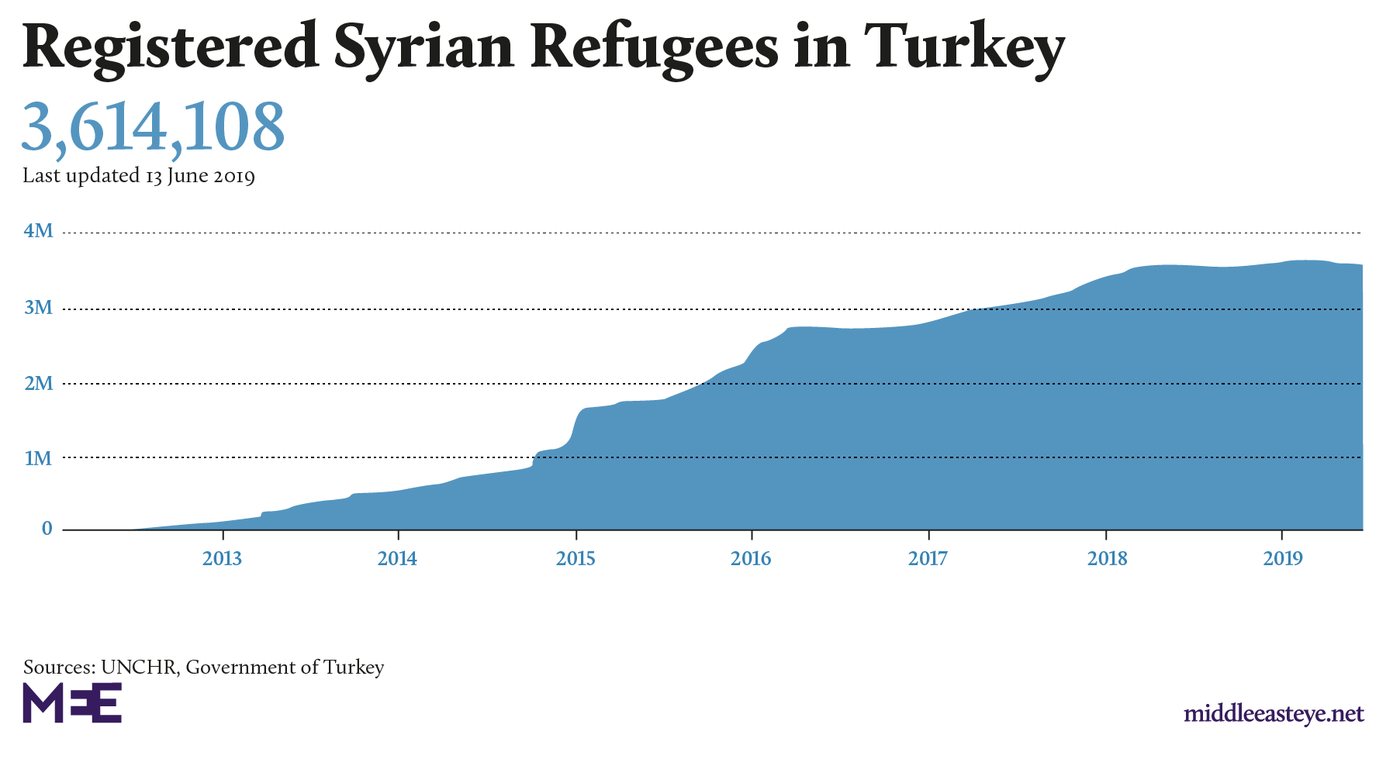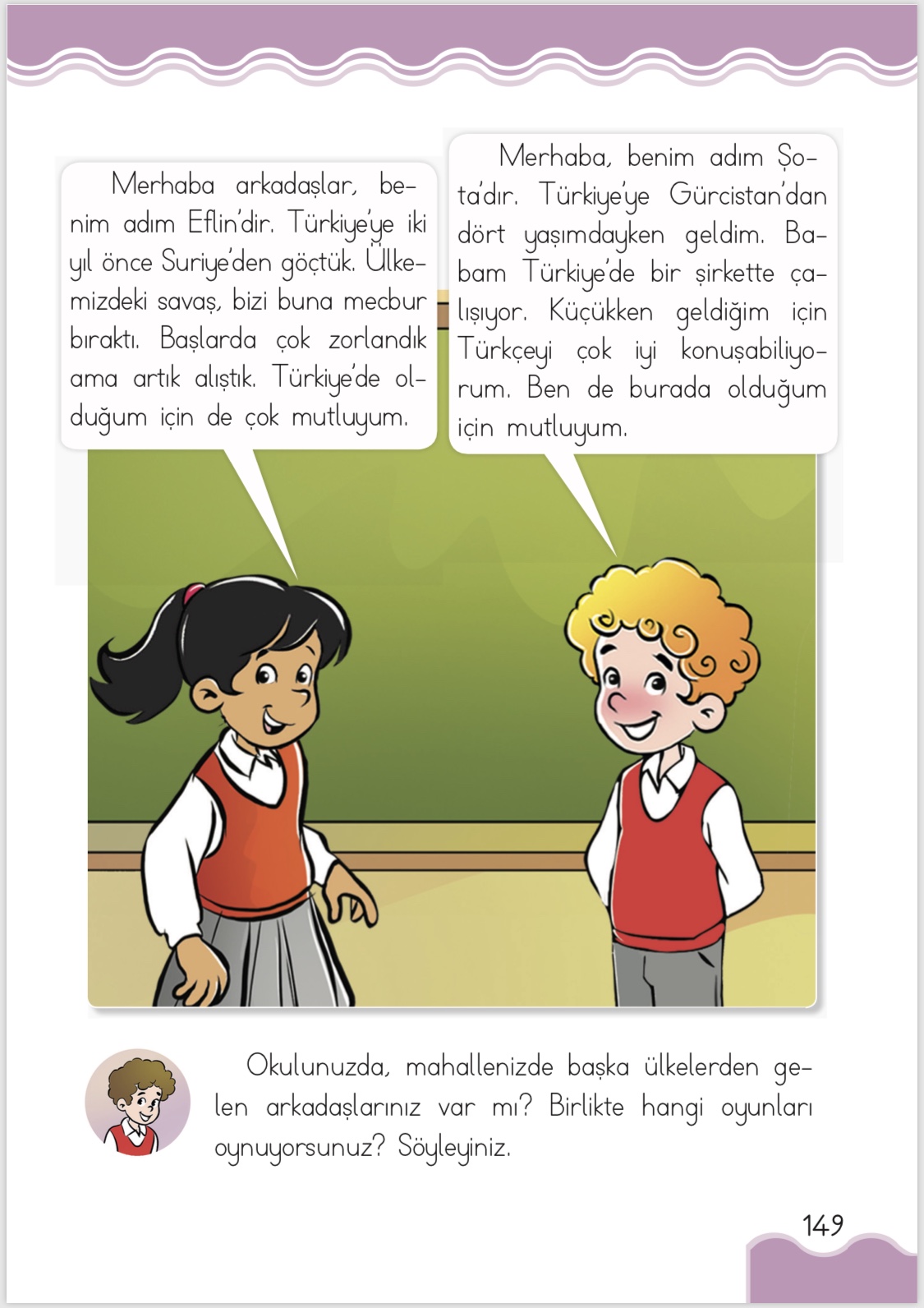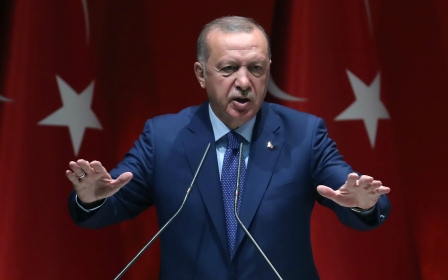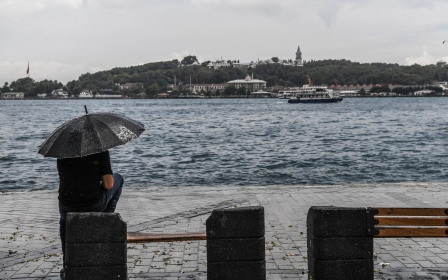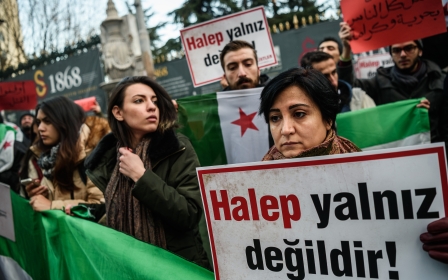Reading, writing, empathy: Tackling anti-Syrian prejudice in Turkish classrooms
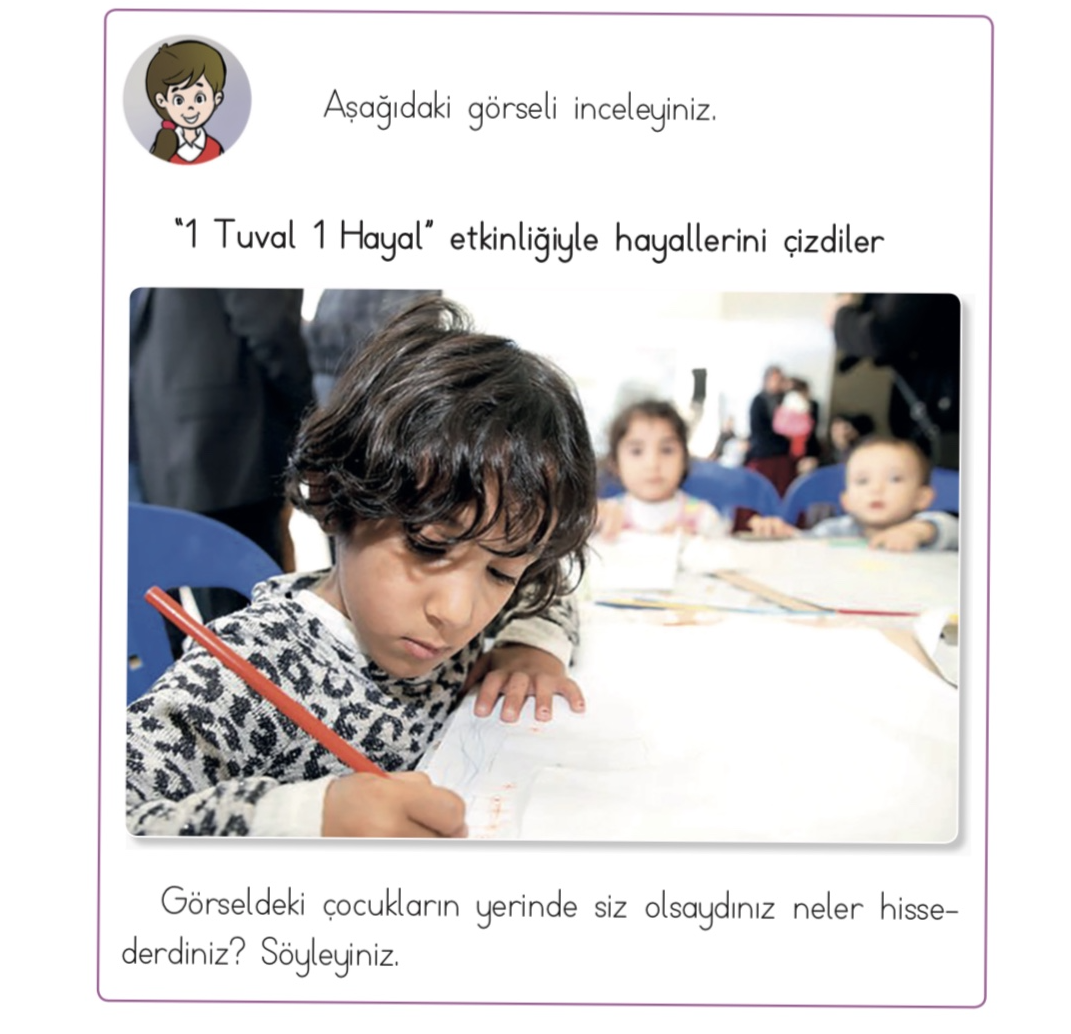
Turkey's education ministry is seeking to address growing hostility towards millions of Syrian refugees by distributing a new textbook to school children with a special section on refugees that encourages them to empathise with classmates from other backgrounds.
The three-page section in the Social Science Studies book showcases a child refugee who is pictured drawing a painting under the “One canvas, one dream” initiative in Istanbul in 2017, which aimed to entertain Syrian children as well as show locals the feelings a child refugee may be experiencing.
“If you were in the place of the children you see, what would you have felt?” the book asks.
“We live with people from different cultures who willingly emigrated to our country to seek jobs or were forced to come due to reasons such as war.”
Neighbouring Turkey has been the main destination for Syrians fleeing north across the border since their country exploded into civil war in 2011.
New MEE newsletter: Jerusalem Dispatch
Sign up to get the latest insights and analysis on Israel-Palestine, alongside Turkey Unpacked and other MEE newsletters
At a security conference in Ankara on Thursday, Turkish Interior Minister Suleyman Soylu said the current number of Syrian refugees hosted in Turkey had surpassed 3.5 million people.
“The enrolment rate of school-age Syrian children in primary schools is 96.3 percent. It isn’t possible to reach a similar number in other parts of the world,” he said.
But the Turkish government has forcibly expelled hundreds of Syrians to the opposition enclave of Idlib in recent months. Due to increasing tensions in Istanbul, 40,000 Syrian refugees were also deported from the city to other parts of the country earlier this year.
After eight years of war, during which time many Syrian communities have become well established in Turkish cities, several polls suggest the Turkish public is now overwhelmingly opposed to continuing to host the refugees.
A progressive step
While the book is a small step towards greater harmony, experts think it is still an important development.
Omar Kadkoy, an analyst at Ankara-based Economic Policy Research Foundation of Turkey (TEPAV), told Middle East Eye that educating the host community on the situation of refugees is an important component in shaping a new generation that is more accepting of a diverse and multicultural society.
“Introducing migration-friendly lessons for first-graders puts Turkey in the league of Germany and Northern Ireland. By all means, this is nothing but a progressive step on different levels. The lessons will trigger interaction between Turkish and migrant students as they share the same seats in schools. This interaction will bring together parents of the two sides as well,” he said.
The education ministry told MEE in a statement that the book was intended to teach fundamental knowledge and values to students about their social and physical environment.
“In this part of the book, we expect our students to be aware of our country’s diversity and people from different cultures. We also expect them to comprehend the [realities] of people who emigrated to our country willingly or not,” the statement said.
A page of the refugee friendly school book: "Hey friends, my name is Eflin. We immigrated to Turkey from Syria 2 years ago. The war in our country compelled us to do that. We initially had some hardships but now we have adapted. We are very happy to be in Turkey." The book then asks children to mention their friends from other countries and tell which games they play together.
While enrolment rates among Syrian children of primary school age are high at 96 percent, the overall rate for the estimated one million children of school age stands at about 62 percent, which is in line with the average figure for refugee enrolment in schools worldwide.
Kadkoy told MEE that some children dropped out of school rather than continuing into secondary education in order to work.
“Secondary education is trickier since children can, unfortunately, drop out to work. As such, 58 percent of appropriately aged Syrians in Turkey are enrolled in secondary education - putting them somewhere between 24 percent for worldwide refugees and 84 percent for the global enrolment rate.”
Some Syrian parents and civil society groups have complained however that the crackdown on Syrians living in Istanbul without the correct papers has meant that some children were unable to enrol in school.
“We Want to Live Together Initiative”, an Istanbul-based civic group, claimed last week that schools weren’t registering children unless their parents had residency permits in the same city, and raised concerns that the policy risked splitting up families.
A Turkish official, speaking on condition of anonymity, told MEE earlier this month that they were trying to find a way to ensure that children would not be separated from their parents.
Middle East Eye delivers independent and unrivalled coverage and analysis of the Middle East, North Africa and beyond. To learn more about republishing this content and the associated fees, please fill out this form. More about MEE can be found here.


